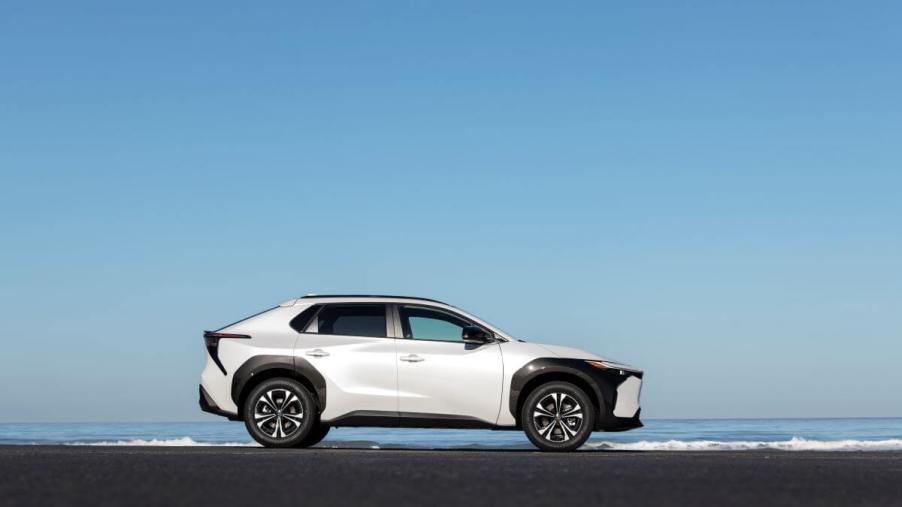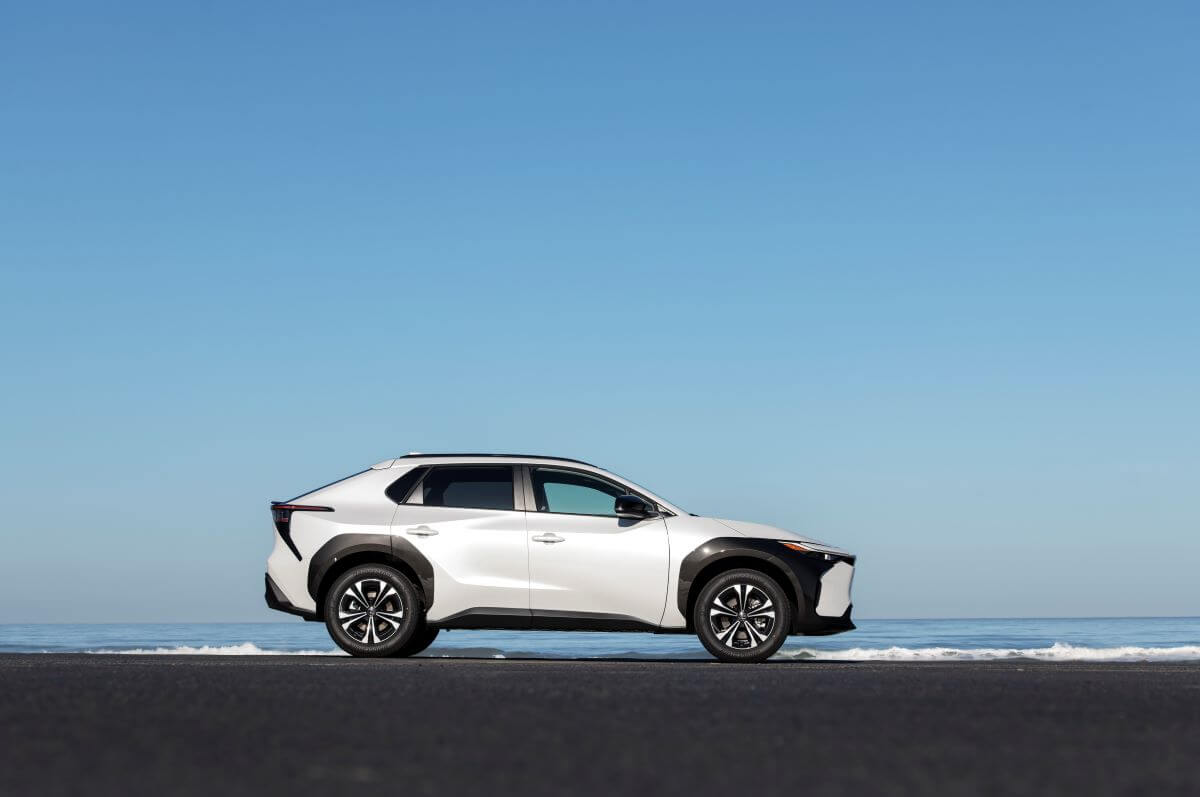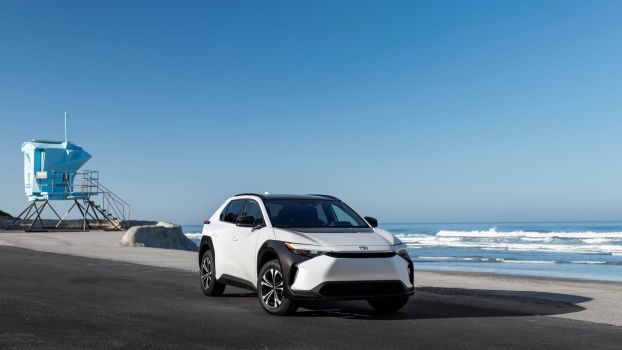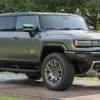
An EV Road Trip Revealed a Hidden Drawback to the Toyota bZ4X
One of the top questions posed to EV drivers seems to be, “But what if you need to take a long road trip?” Driving range, charge times, and even weather conditions can come into play when there are hundreds of miles to traverse and nothing but electricity propelling the chariot in question, so it is a fair question.
The driving ranges of most EVs have risen significantly over the past few years while charging times have plummeted, but there are still electric cars and SUVs that just can’t foot the bill when a long road trip is in order. A report from Business Insider shows Toyota’s new bZ4X, the automaker’s first mass-produced EV, isn’t shaping up to be a long-haul hero.
The Toyota bZ4X’s range lags behind the competition

Tim Levin, a reporter with Business Insider, recently took a 500-mile trip from New York to Washington, DC, and back in the 2023 Toyota bZ4X Limited, the upper of just two trims offered in the model’s first year of production.
The all-electric road trip wasn’t exactly a success.
Levin reports the Toyota required a full three hours of charging on top of the nine hours he spent behind the wheel. Though we don’t know how heavy the author’s right foot was during this journey, that’s simply far too much time spent re-juicing the batteries versus draining them, and the biggest offenders are the bZ4x’s lackluster charging rates and overall driving range.
The all-wheel drive Toyota bZ4X Limited Levin piloted, which comes with a 65.5-kWh battery pack, is rated for just 222 miles of range by the EPA. That figure may have been respectable a decade ago, but modern all-electric crossovers like the Hyundai Ioniq 5, Kia EV6, and Ford Mustang Mach-E are all rated for over 300 miles of range in their most efficient trims, far more than the longest-range bZ4X of the bunch (Levin’s AWD Limited is rated lowest).
The range is a vital factor, but when the trip in question is 500 miles, charging times are just as, if not more, important. Toyota’s new electric SUV was also a disappointment in this regard.
The bZ4X struggles to receive a charge
The Toyota bZ4X is equipped with DC fast charging capability, but in AWD versions, its maximum input is limited to just 100kW. That rate requires about an hour to recharge the Toyota from “low” battery to 80 percent. For reference, the Ioniq 5 can receive up to 250kW, re-juicing its battery pack from 10 to 80 percent in just 18 minutes. The Tesla Model 3, with the automaker’s extensive charging network, can also receive up to 250kW and takes slightly longer to re-energize its pack.
Of course, the Toyota’s max 100kW input rate is under ideal conditions, and those were not found on Levin’s trip. The reporter states he “never got close to 100 kW, leading to some excruciating charging times.” Levin said at one charging stop during his trip, the Toyota “refused” to charge at more than 35kW, adding just 95 miles of range in 45 minutes.
An emissions-free road trip with plenty of anxiety
Beyond Levin’s struggles to charge the 2023 Toyota bZ4X near its max rate, along with its lower-than-average range to begin with, the author suggested another crucial aspect of using an EV on a road trip — range anxiety. Knowing where to charge an EV on a road trip requires far more foresight than simply popping into a gas station. Range anxiety can also impact how a person drives their EV. Levin said the final 176 miles of his journey was undertaken on a cold morning, and with the Toyota’s heat turned on, its indicated range dropped well below the miles he needed to cover. Presented with a choice of stopping for another charge or facing the cold, Levin opted to be chilly.
Road trip prospects could be keeping buyers away from EVs
Levin’s struggles to take a 500-mile round trip in the Toyota bZ4X underscore many drivers’ concerns about switching to all-electric power. Perhaps they don’t take too many long journeys over a year, but they at least want the ability to do so without stopping for an hour or so every few hundred miles.
The good news for prospective EV converts is almost all 2023 all-electric models offer better range and charging rates versus the bZ4X. Some even offer ways to relax or stay entertained while charging and can add 100 or so miles of range in the time it takes to take an appreciated rest stop. Still, those who want to frequently knock out 500 miles of driving in a single go will still want more before they put an EV in their garage.




